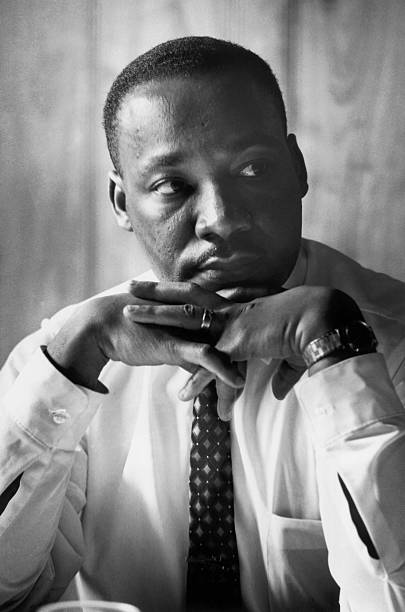Leadership from Dr. Martin Luther King Jr.
RAFT Team, January 14, 2021
The human, not the image
These days, when we reflect on Reverend Dr. Martin Luther King Jr. we often think of him as a nonviolent preacher, a dreamer of racial unity, a beloved civil rights leader, or simply the person behind a much-needed (!) national holiday.
And while these are not wrong understandings about Dr. King, too often they are rigidly upheld and don’t reveal the whole picture of his life. Dr. King was a man whose legacy was much more nuanced.
From Dr. King’s legacy, it is often left out that he rebuked agents of systemic poverty just as much as racial segregationists. He was a strategic grassroots organizer who disrupted local economies and agitated racial apathy. Also, he was not revered as much as he is today. The FBI made multiple attempts on his life and many Black people rejected him in favor of ideologies from Malcolm X and the Black Panther Movement.
The list could go on to include his extramarital affairs and addiction to smoking, but I think you get the point: Dr. King was an imperfect, burdened human just like us. And we must view him more humbly. Otherwise, we encourage a harmful perception that one must be great to do great things.
So here are three lessons we can learn from Dr. King’s life that will impact how we lead the fight to end sexual and domestic violence.
1. We don’t have to be perfect to affect change
How many times have you desired to change something in your life and thought “But I need to get myself together before I do something about it”? Whether it is learning how to say no to your superior, implementing intentional boundaries at home or daring to step into a leadership role, it is worth diving into the change just as you are. We are not saying don’t be prepared at all. But we are saying that you are the right person to make the change. As seen in the life of Dr. King, the perfect person never arrived; and yet, he still accomplished much! Any act you take, including steps towards your self care, is a crucial win for the end of sexual and domestic violence.
2. Leading from vulnerability is a strength
There was little room in Dr. King’s life to show vulnerability beyond his careful words and actions. His crafted image as a sanctified Reverend was both a cover for his personal wrongdoings and a trap that made him vulnerable to attacks of hypocrisy. Fortunately, this is not the reality for most of us today. We operate in a movement where vulnerability is inherent to the work. And because of your hard work, the perception of vulnerability as weak and inadequate is shifting. Now, vulnerability is an esteemed quality that is attractive and deeply humanizing in leaders. As advocates, we know how to lead from a place of vulnerability. Let’s lean into this strength so that others feel more hopeful and safe to do the same.

3. We need well-functioning, supportive leadership
Despite having a phenomenal group of civil rights leaders backing his leadership, Dr. King struggled to navigate divisions among leadership, to hold them (and himself) accountable, and to create an environment that safeguarded Black women from sexual violence.
For us advocates, struggling leadership is real because our burnout is real. We are compassion fatigued, exhausted by the workload and perpetually upset that our services are even needed in the first place (seriously, we’re probably one of the few professions that hope for an end to our jobs because sexual and domestic violence has ended). Such working conditions are not beneficial to you, leadership, and the organization as a whole. When the leadership is healthy, they are able to adequately support advocates and survivors.
At RAFT, we care deeply about supporting advocates to improve the health of the entire organization. We invite you to contact us and learn more about our research-based model to strengthen leaders in SV/DV agencies.
Your Legacy
We will never know if Dr. King would be pleased with how he is remembered today, but you get to be pleased with how you’re remembered every day. Next time you step up to lead, ask yourself, “Who do I want to be remembered as?” May it be a person far more authentic than the image often imposed on Dr. Martin Luther King Jr.







